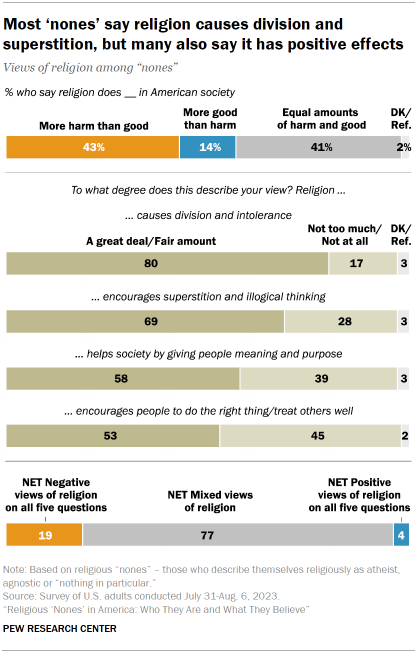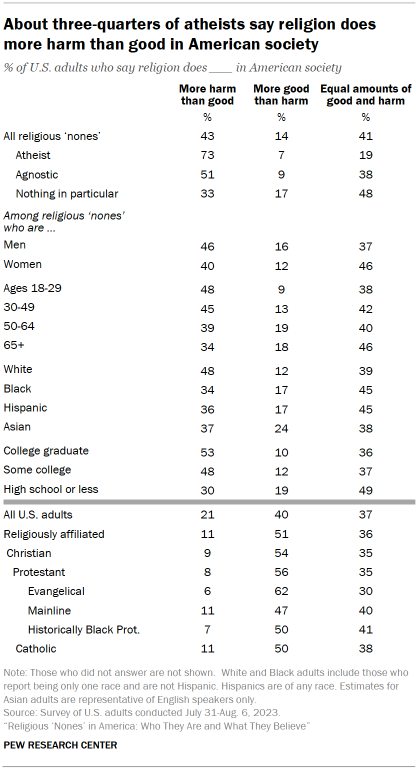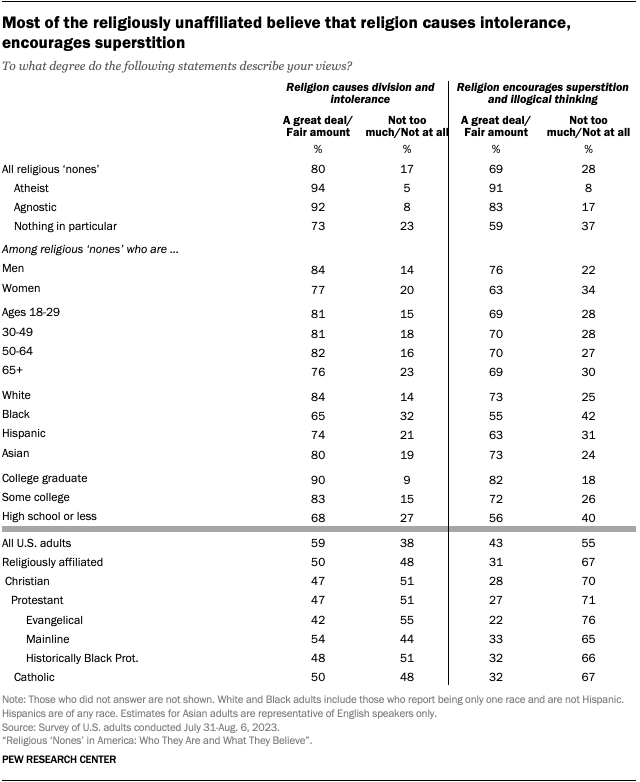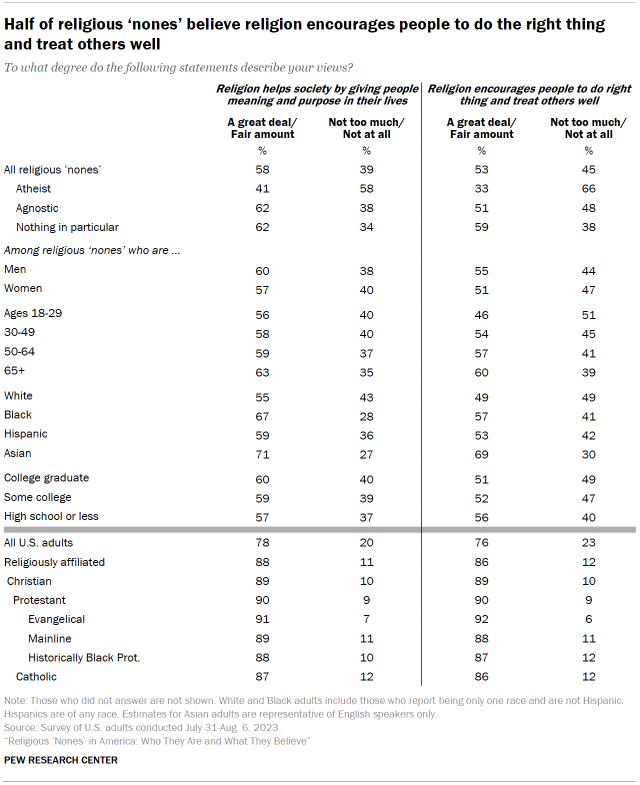Some are. But many are not.

Around a fifth of “nones” express consistently negative views of religion. They say it does more harm than good in society, encourages superstition and causes division. These “nones” also reject a couple of positive statements about religion – that it encourages people to treat others well, and that it helps society by giving people meaning and purpose in their lives.
But most religious “nones” take a more neutral view of religion, expressing a mix of positive and negative opinions about its impact on people’s lives and on society as a whole.
Few “nones” surveyed – just 4% – express consistently positive views of religion.
Views of whether religion does more good or harm

When asked directly, 43% of “nones” say religion does more harm than good in American society. A similar share says religion does equal amounts of good and harm. Fewer religious “nones” (14%) say religion does more good than harm in American society.
“Nones” are much more likely than religiously affiliated adults to believe religion does more harm than good, and much less likely to say religion does more good than harm in American society.
“Nones” with at least some college education are more likely than those with a high school diploma or less education to believe that religion does more harm than good. And White “nones” are more likely than “nones” of other races and ethnicities to believe that religion does more harm than good.
Views of whether religion fosters intolerance and superstition
Eight-in-ten “nones” agree “a great deal” or “a fair amount” with the following statement: “Religion causes division and intolerance.”
And 69% agree a great deal or a fair amount that “religion encourages superstition and illogical thinking.” This includes higher shares of atheists (91%) and agnostics (83%).

Views of whether religion can provide meaning, encourage kindness
At the same time, at least half of “nones” say religion has certain benefits for society.
Most “nones” (58%) say that the following statement – “Religion helps society by giving people meaning and purpose in their lives” – describes their own views a great deal or a fair amount, including 62% of agnostics and those who say their religion is “nothing in particular.”
A similar pattern emerges on the statement that religion “encourages people to do the right thing and treat other people well.” About half of religiously unaffiliated Americans say they agree a great deal or a fair amount that religion does this.

Return to the report’s Overview.
Find answers to other questions:
- Who are the ‘nones’? How are they defined? (Chapter 1)
- Why are ‘nones’ nonreligious? (Chapter 2)
- Are ‘nones’ less involved in civic life than people who identify with a religion? (Chapter 3)
- Are all ‘nones’ nonbelievers? (Chapter 4)
- Are ‘nones’ spiritual instead of religious? (Chapter 5)
- How do ‘nones’ view science? (Chapter 7)
- How do ‘nones’ think about morality? (Chapter 8)




